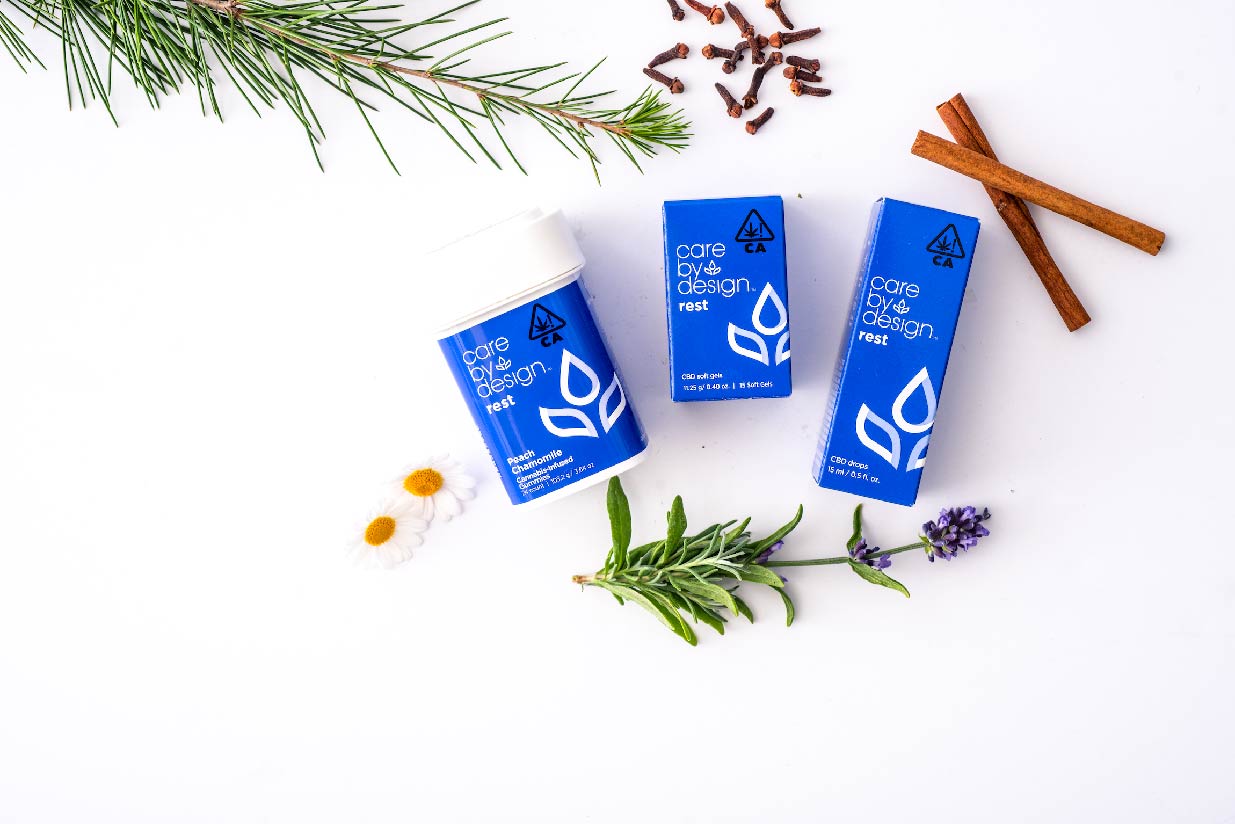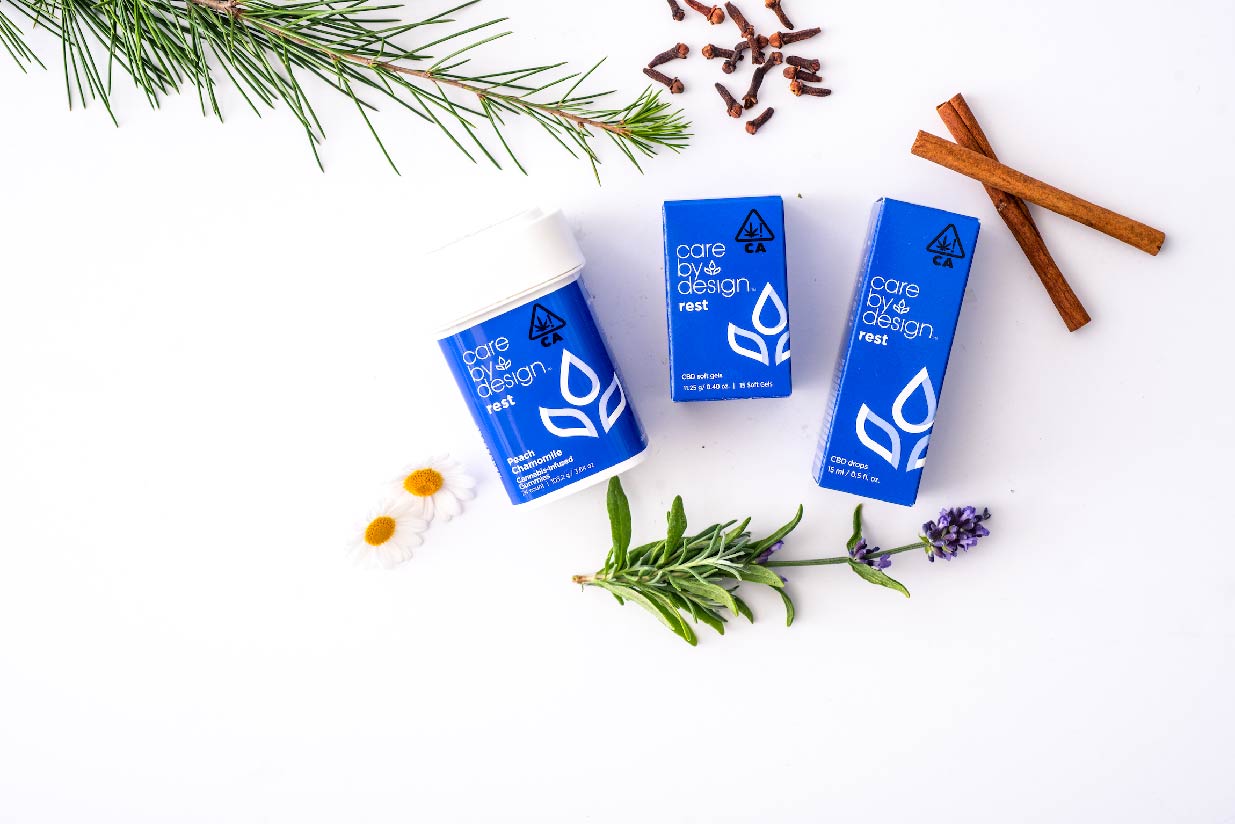This week we are pairing the Care by Design effect “Rest gummies'' with a restorative yoga practice. This practice is unique because rather than flowing through many different poses and heating up our bodies in a more active practice, we passively hold poses for a longer duration in order to shift and retrain the body to shift from the sympathetic to the parasympathic nervous system.
Why it’s important: If you live in a high paced society, you might be living constantly in your sympathetic nervous system, or your “fight/flight/freeze” mode. When active, this system prepares the body for strenuous activity because it needs to prepare to respond to any outside threat. When we are in this state constantly, our nervous system learns to become more sensitive to suspected dangers that might not even exist which can exacerbate anxiety. By leaning into rest and restorative practices, we can tap into the parasympathetic nervous system which is dominant in our “rest and digest” state. By being in this state more frequently, it can retrain our nervous system to calm and get triggered less frequently. Due to this, comfort and a safe environment is key in this practice.
How: the restorative practice typically consists of 3-6 poses that are held for anywhere between 10-20min each. The body is fully supported by props (mat, blocks, blankets, bolsters and pillows) to help the body feel safe and comfortable. The more supported the body feels, the easier it becomes to shift our gears into rest mode, especially when paired with the “Rest” formula. Finish your evening with these tasty gummies and this juicy bedtime practice.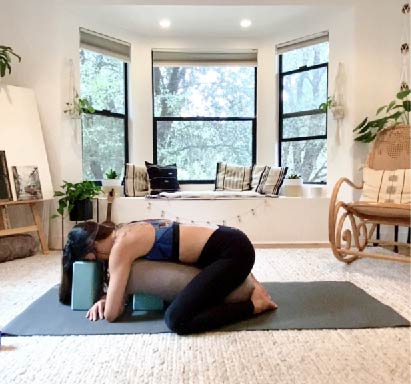
- Restorative child’s pose (Balasana): Place pillows or bolster under the hips and torso and support as much as needed with blocks underneath. Make sure your head and neck are supported by a block as well. You can reach your arms towards the front for a passive shoulder stretch or between the block and bolster for a more restful position. Hold for 10-20min.
Side note: When we support our midsection with pillows in this pose, it creates a calming sensation through our bodies because our internal organs feel protected. This posture is great in tapering symptoms of anxiety and feelings of stress.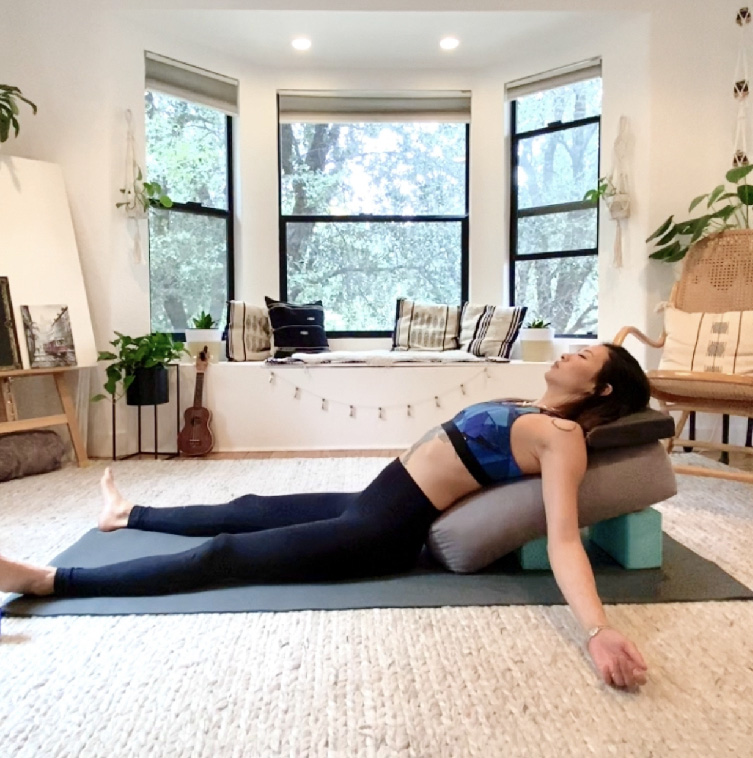
- Restorative fish pose (Matsyasana): Place pillows length wise on your mat with the short side against your bum/lower back. Slowly lay yourself down and make sure your entire spine is supported while your arms open out to the sides. Hold for 10-20min.
Side note: This pose helps to undo a lot of the hunching we do all day long in front of our phones and computers. It’s a great way to help expand the upper back, neck and shoulders. Finish with a forward fold to counter the posture.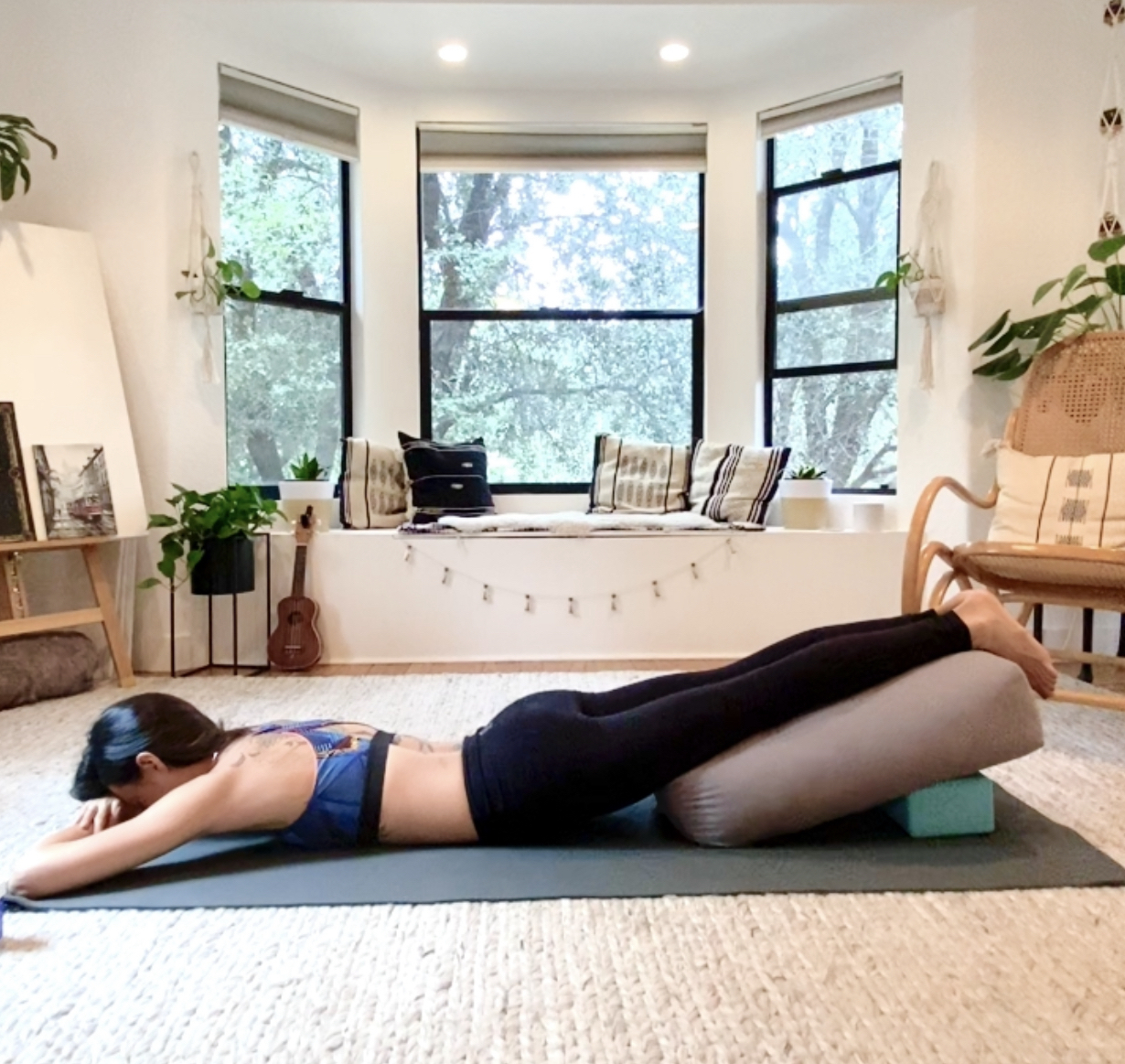
- Restorative locust pose (Salabhasana): This posture is done by setting the bolster length wise on your mat and lay prone on your belly with the front of the hips on the mat with the legs straddling either side of the bolster. Once the body is in place, place the legs onto the bolster to create a nice back bend in the lumbar spine. You can have the arms in any comfortable position with the head and neck completely relaxed. Hold for 10-20min.
Side note: This posture will target the low back. Manage the amount of arch this shape creates by shifting the blocks to a higher setting (less arch) or taking the blocks away (more arch) in your lumbar spine. Finish with cat/cow or a child’s pose to counter.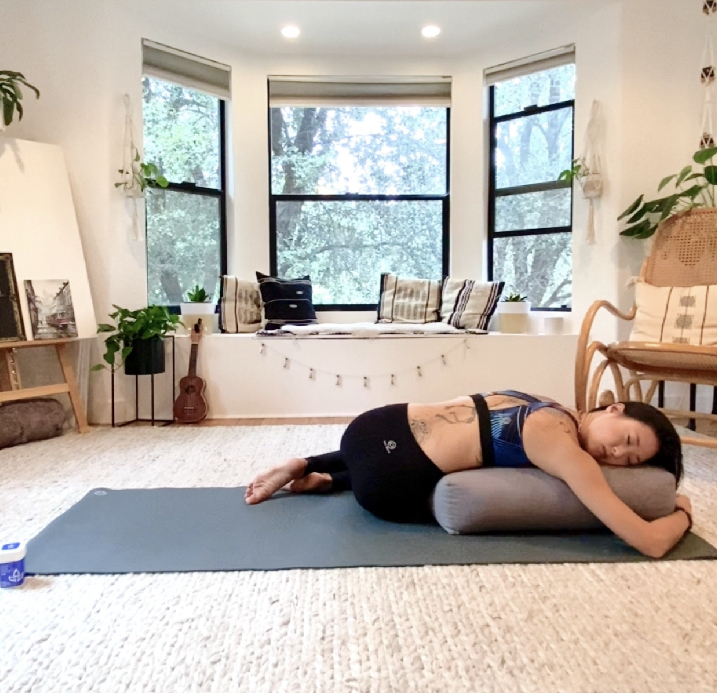
- Restorative Side lying twist (Jathara parivrtti variation): Begin by placing the bolster length wise on the mat. Sit with your left hip contacting the short side of the bolster. Rotate your torso towards the bolster and lie on it with the head turned in the opposite direction of the legs. Hold for 10-15 min. Repeat on the other side.
Side note: This is a prone variation to the popular low back spinal twist pose in yoga. This slightly more supportive posture gives you a gentle stretch while promoting a calming sensation throughout. You don’t have to turn your head if the stretch is too intense. Remember, comfort is key!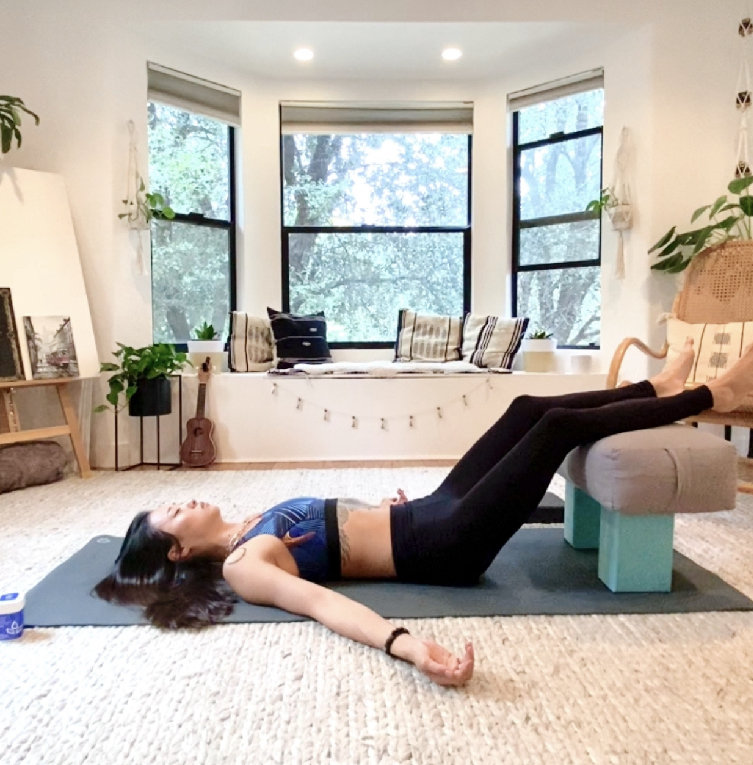
- Restorative corpse pose (with elevated legs on stone hedge or chair): For the final pose, place both block on the highest setting 6-10inchs apart at the end of the mat. Place the bolster on top to create a stone hedge looking self for your legs to rest on. Recline onto your back and place calves on the support and let your body unwind and let go. Hold for 10min-goodnight.
Side note: What is the purpose of elevating our feet? When our feet are elevated, it has a way of tricking the nervous system into calming down because the bodily position makes it harder to get away from trouble. So, when we put up our feet, the more relaxed we feel. You can use a chair if you don’t have blocks or bolsters.
Namaste everyone!
